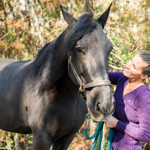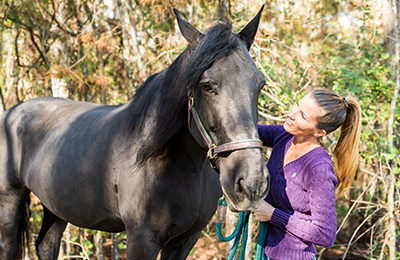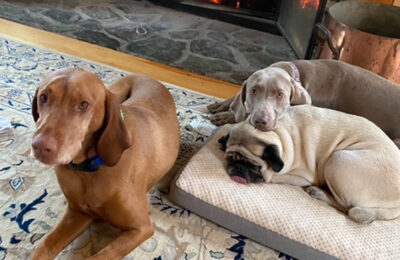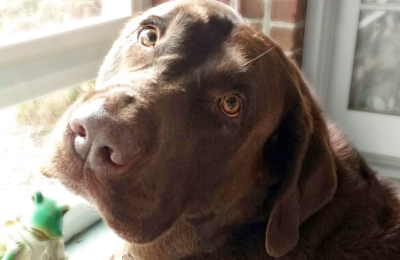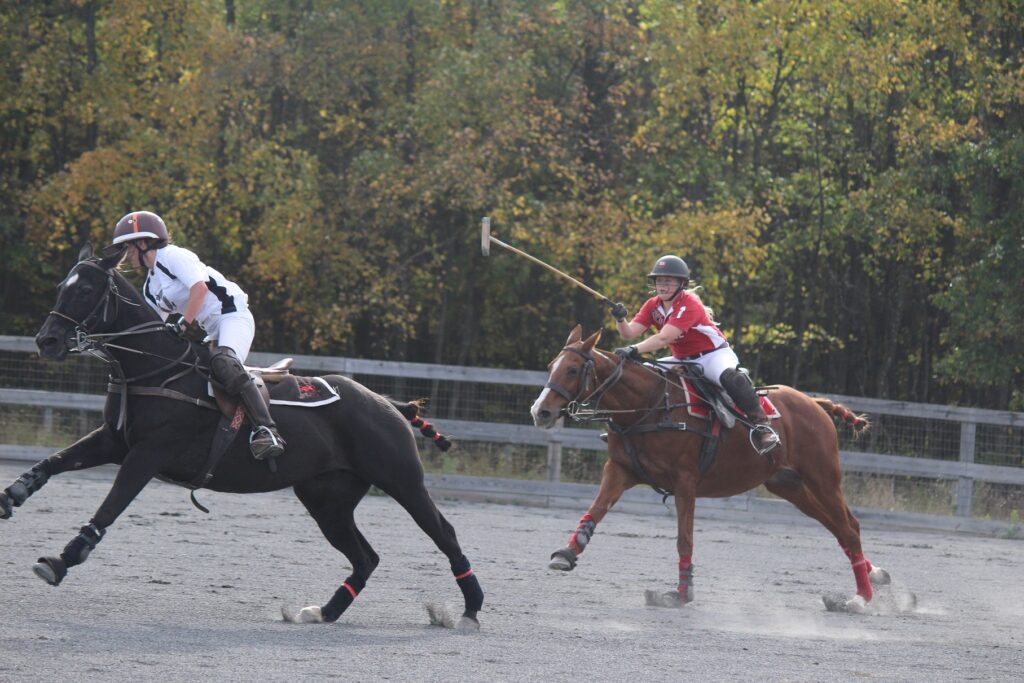
To keep Cornell University’s varsity polo team competitive, the equine athletes, referred to in polo as ponies, must be able to perform their best in a demanding game.
“The 40 horses are Division 1 Ivy League athletes, just like their student riders,” said Lisa Fortier, DVM, James Law Professor of Equine Surgery and Director of Equine Programs at Cornell University. “Each horse experiences some wear and tear on their joints as they get older, just like humans. We want to make sure we keep them comfortable.”
Since the fall of 2019, Dr. Fortier and Head Coach Branden Van Loon have been strategically introducing regenerative medicine to the polo horses. Specifically, they are treating them with autologous conditioned plasma (ACP) to safely achieve and maintain reliability in the horses without resorting to steroids or nonsteroidal anti-inflammatory drugs (NSAIDS).
ACP has been used for many years in people undergoing orthopedic procedures, including joint replacement, fracture repair and joint fusions,1,2 where it has been reported to improve bone and soft-tissue healing.3–7 In addition, treatment with ACP in these cases may help prevent excessive blood loss, decrease the risk of infection, enhance wound healing, and reduce pain such that fewer pain-relieving drugs are required.
“In order for Cornell’s polo program to continue to be competitive on the national stage, we must take very good care of our horses,” said Fortier. “Utilizing regenerative medicine, such as the Arthrex ACP double-syringe system, helps us protect our horses’ bodies so that they can compete on the national level for as long as possible.”
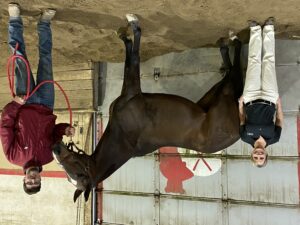 Turca, a 16-year-old Argentine-bred horse, has been part of Cornell’s men’s and women’s polo teams since 2015. Her excellent handling helps her excel in technical plays and the students love competing with her.
Turca, a 16-year-old Argentine-bred horse, has been part of Cornell’s men’s and women’s polo teams since 2015. Her excellent handling helps her excel in technical plays and the students love competing with her.
“When I became head coach, Turca was at risk of being cut from varsity due to her poor performance,” said Van Loon. “She was having difficulty holding her lead behind and struggled to pick up her left lead, and she really just lacked ‘run.’”
Van Loon and Dr. Fortier decided to inject Turca’s hocks with steroids in January 2019. This led to some immediate improvement and helped Turca to finish out the collegiate season.
“As we began the 2019-20 season, I couldn’t help but feel that we could still be doing more for Turca,” said Van Loon.
That’s when they decided to try Arthrex Vet Systems autologous blood products.
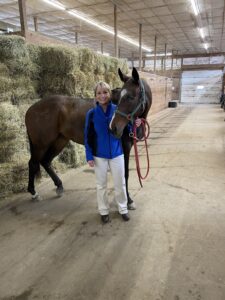 “This made a world of difference for Turca,” Van Loon said. “Her hind end is rock solid and her stride has increased in length. These elevations in Turca’s performance secured her place in Ingrid Donnan’s [2019] National Intercollegiate Championship game string.”
“This made a world of difference for Turca,” Van Loon said. “Her hind end is rock solid and her stride has increased in length. These elevations in Turca’s performance secured her place in Ingrid Donnan’s [2019] National Intercollegiate Championship game string.”
Turca has competed in the national championships every year since her previous owners donated her to Cornell in 2015, and the program’s leadership credits Arthrex Vet Systems for making it look like she will continue to have several more years of national competition.
Coach Van Loon also points to a horse named Trailmix as an example of the power of regenerative medicine helping horses who were previously unable to come back from an injury. Before her injury, Trailmix played polo in Wellington, Florida for several years with one of the highest rated American players.
Trailmix bowed her right front tendon. Dr. Fortier explained that bowed tendons may heal, but they are typically very prone to re-injury.
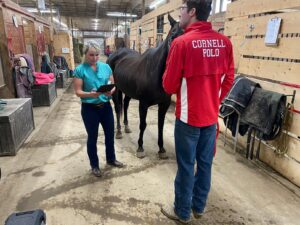 “The key is to keep the tendon from forming stiff scar tissue, which is less elastic than normal tendon and has a tendency to tear when the horse goes back to athletic activity,” said Dr. Fortier. “We know from our work and the work of many others that ACP helps repair tendons by stimulating normal collagen synthesis with less scarring.”
“The key is to keep the tendon from forming stiff scar tissue, which is less elastic than normal tendon and has a tendency to tear when the horse goes back to athletic activity,” said Dr. Fortier. “We know from our work and the work of many others that ACP helps repair tendons by stimulating normal collagen synthesis with less scarring.”
When she first bowed the tendon, the initial plan was to transition her into being a broodmare.
“Due to our relationship with Cornell Veterinary School and Arthrex, the Arellano family decided to entrust Trailmix to the polo program, giving her the best opportunity to continue her career as a performance horse,” said Dr. Fortier.
She added, “Her explosive power makes her a force to be reckoned with on the field. I expect her to earn her spot as a game horse for the Cornell men’s team captain, Jed Cogan, very soon.”
Learn more about the Arthrex ACP double-syringe system, or read our Owner’s Guide to Natural Healing.
Visit our blog to see how we’re Helping Veterinarian’s Treat Their Patients Better™.
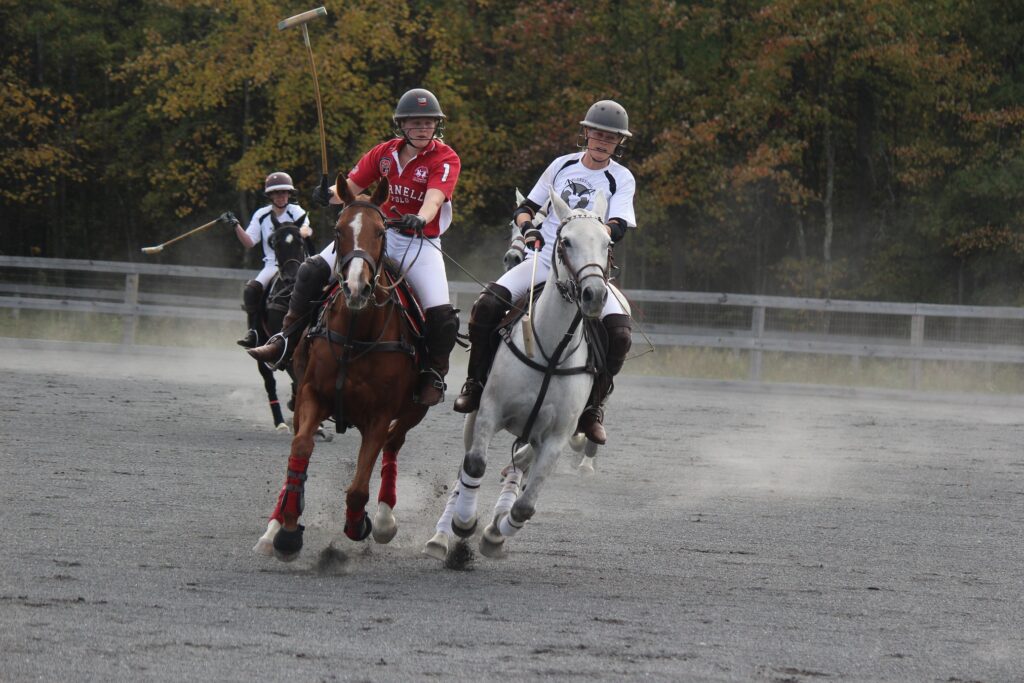
1. Everts PA, et al. Autologous platelet gel and fibrin sealant enhance the efficacy of total knee arthroplasty: improved range of motion decreased length of stay and a reduced incidence of arthrofibrosis. Knee Surg Sports Traumatol Arthrosc. 2007;15(7):888-894.
2. Everts PA, et al. Platelet gel and fibrin sealant reduce allogeneic blood transfusions in total knee arthroplasty. Acta Anaesthesiol Scand. 2006;50(5):593‐599.
3. Anitua E, et al. Bilateral sinus elevation evaluating plasma rich in growth factors technology: a report of five cases. Clin Implant Dent Relat Res. 2012;14(1):51‐60.
4. Anitua E, et al. The effects of PRGF on bone regeneration and on titanium implant osseointegration in goats: a histologic and histomorphometric study. J Biomed Mater Res A. 2009;91(1):158-165.
5. Gallo I, et al. Autologous platelet-rich plasma: effect on sterna healing in the sheep model. Interact Cardiovasc Thorac Surg. 2010; 11(3):223-225.
6. Molina-Minano F, et al. Plasma rich in growth factors and bone formation: a radiological and histomorphometric study in New Zealand rabbits. Braz Oral Res. 2009;23(3):275-280.
7. Niemeyer P, et al. Comparison of mesenchymal stem cells from bone marrow and adipose tissue for bone regeneration in a critical size defect of the sheep tibia and the influence of platelet-rich plasma. Biomaterials. 2010;31(13):3572-3579.
